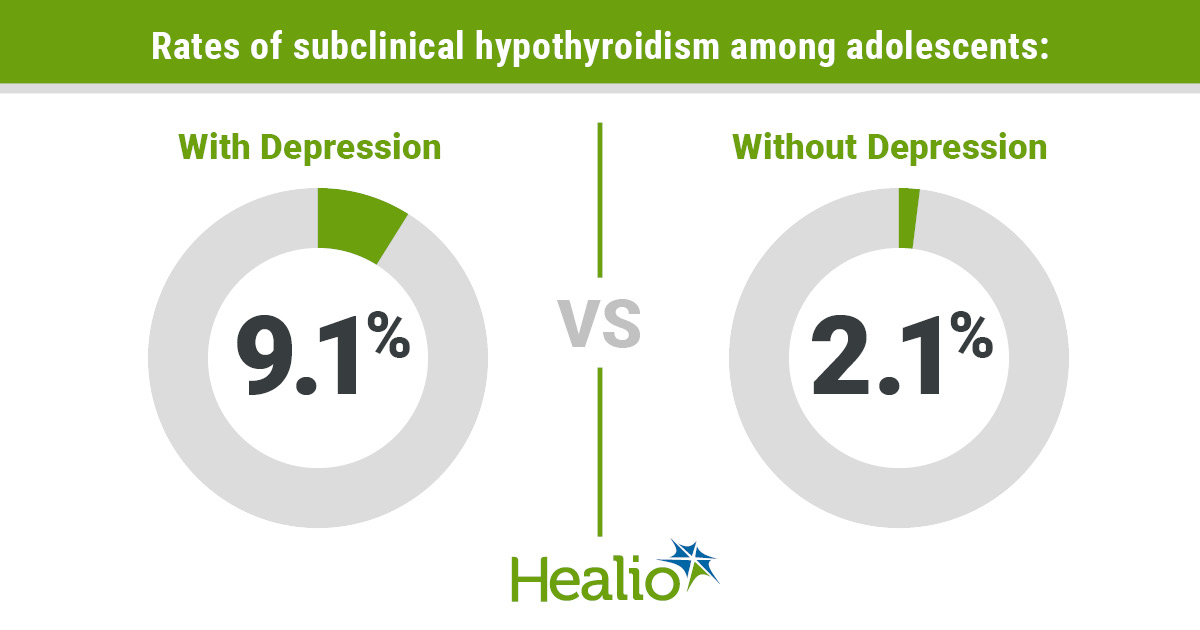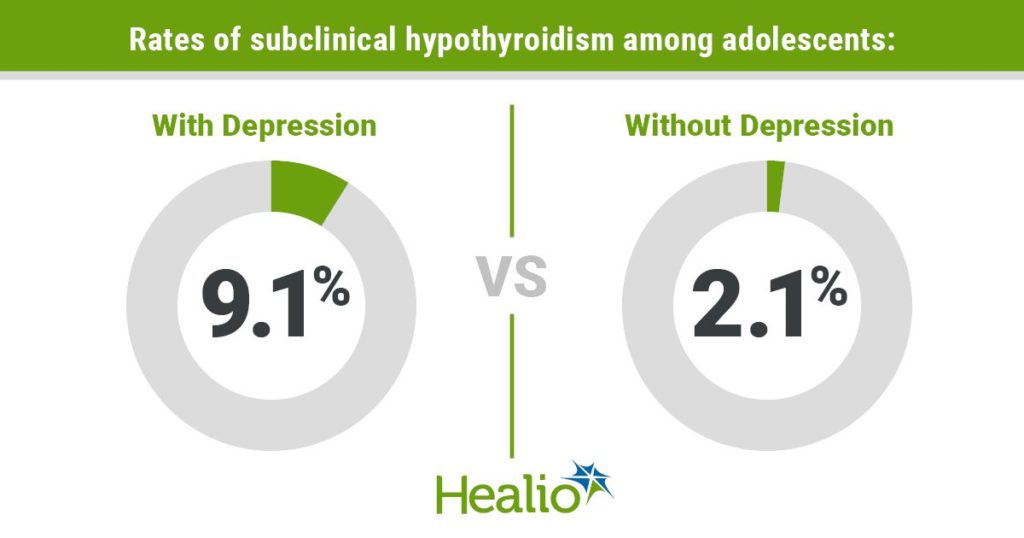March 29, 2021
1 min read
Assessment of thyroid function may be warranted among adolescents with depression because of their increased risk for subclinical hypothyroidism and thyroid autoimmunity, according to a study published in Journal of Clinical Psychiatry.
“Thyroid dysfunction and thyroid autoimmunity are known to affect mental health in adults,” Raphael Hirtz, MD, PhD, of the department of pediatrics II at the University Hospital Essen in Germany, and colleagues wrote. “A recent large-scale meta-analysis confirmed a 3.3-fold increased risk for depression in hypothyroidism and autoimmune thyroiditis. In contrast, information on thyroid dysfunction in children and adolescents with depression is scarce, and studies are difficult to interpret due to conflicting findings, small sample size and sample heterogeneity.”

Reference: Hirtz R, et al. J Clin Psychiatry. 2021;doi:10.4088/JCP.20m13511.
To address this research gap, the investigators analyzed data on thyroid function parameters, including thyrotropin, free thyroxine and thyroid peroxidase antibodies, as well as the prevalence of thyroid dysfunction and autoimmunity, among 360 adolescents aged 11 to 19 years with at least mild depression according to a score of 13 or greater on the Beck Depression Inventory-II (BDI-II). They also analyzed data from a representative reference cohort whose participants did not have evidence of impaired mental health according to results of a nationwide survey.
Findings demonstrated increased rates of thyroid peroxidase antibody positivity among adolescents with depression vs. those in the reference cohort, with 5.8% as positive in the former and 3.1% in the latter. Those with depression also had higher rates of subclinical hypothyroidism (9.1%) than those in the reference cohort (2.1%); however, no other types of thyroid dysfunction were higher among those with depression. Hirtz and colleagues observed no significant association between thyroid function parameters and BDI-II scores evaluated via multiple regression that accounted for relevant covariates. The researchers verified positive results in a subsample of 284 patients with a confirmed depression diagnosis.
“Longitudinal studies are needed to understand the role and natural history of thyroid dysfunction and autoimmunity in adolescent depression,” Hirtz and colleagues wrote. “To further explore the meaning of systemic autoimmunity in depressed adolescents with thyroid autoimmunity, future research should also address the prevalence of antibodies targeting the [central nervous system] as well as the effect of immunosuppressive therapy on (treatment-resistant) depression in depressed adolescents with [central nervous system] autoimmunity, as this approach has proven successful in patients affected by Hashimoto encephalopathy and may provide causal evidence of the meaning of CNS-Abs in depression.”
